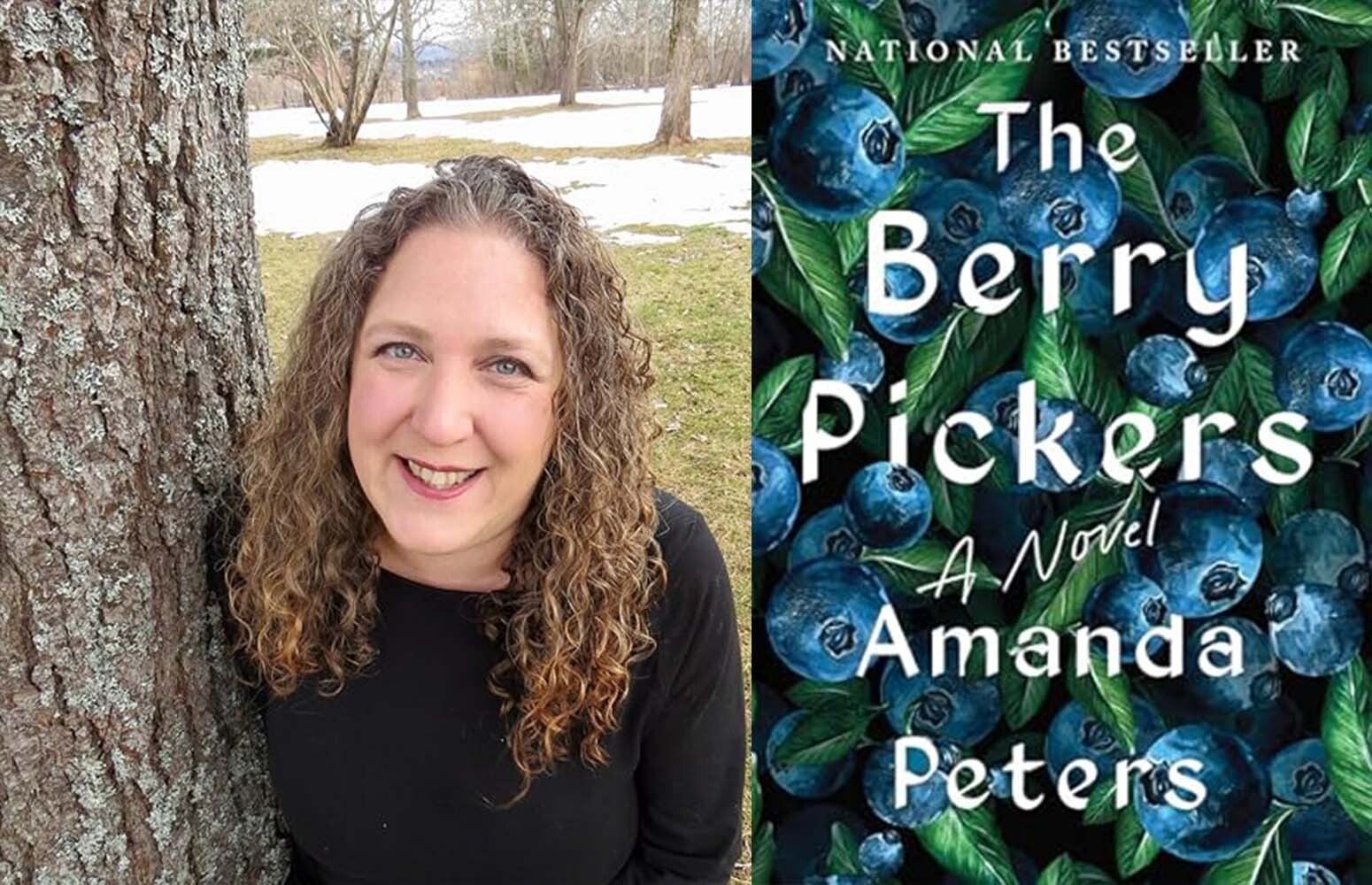Stephen King’s first novel, Carrie — the story of a bullied telekinetic teenager who gets viciously pranked at prom — turns 50 on April 5. In honor of Carrie’s 50th birthday (we sure hope menopause is going better for her than puberty did!), we asked you to tell us about your favorite Stephen King story.
We heard from more than 1,200 of you in just a few days. Many of you told us that Stephen King helped you become readers. Stephanie Larson of Cleveland, Ohio, wrote “no matter where I am — from an academic conference to a busy bus — I’m likely to find a fellow ‘Constant Reader’ whose reading life, like mine, has been transformed for the better by King.”
Many of you balked at the idea of choosing just one favorite Stephen King story — after all, he’s written nearly 100 novels and novellas since Carrie was published. “This is an unfair and impossible question,” Michelle Smith of Mantua, Ohio, told us. “SO HARD!!!” said Bill Cobabe of Ogden, Utah.
Stay informed on the latest news
Sign up for WPR’s email newsletter.
But ultimately you each settled on a favorite (though some of you just couldn’t stop at one), and this is what you told us. (Responses have been lightly edited for length and clarity.):
The Stand
Hundreds of readers wrote in to say this 1978 novel — about a super-flu that has the capacity to wipe out nearly everyone on Earth — was the best King they’d ever read. At 1,000+ pages you said it was very long, but very worth it, and you appreciated how the book balanced horror and hope. Also, you’ll never see the Lincoln Tunnel the same way again.
Many of you read or re-read The Stand during the COVID-19 pandemic. Meghan Balough, an epidemiologist in Salt Lake City, said this novel “has never been more relevant than it is today.” Marc Wright, of Monona, Wis., said The Stand (which he re-read every summer for 20 years) helped him decide to become an epidemiologist.
“There were many parallels between how the world reacted in The Stand and what we saw play out in real life during the pandemic,” said Peter Szeltner of Montello, Wis. “At least we didn’t have to fight the devil himself while rebuilding society.”
Courtney Nichols of Lawrence, Kan., noted that “The evil in the book is not just the disease that destroys the world, but it’s also extremism and selfishness, it’s radical leaders who use fear to control.” David Yaffie of Sugar Land, Texas, said The Stand takes readers on an American Odyssey, blending “biowarfare, apocalypse, religion, horror, adventure, and the intensities of human relationships into a page-turning, eyeball burner of a book.”
About a month into the COVID pandemic, Stephen King spoke with Terry Gross on Fresh Air. “I keep having people say, ‘Gee, it’s like we’re living in a Stephen King story,’ ” he told her. “And my only response to that is, ‘I’m sorry.’ “
11/22/63
This genre-spanning time-travel book tells the story of an English teacher who finds a portal to the past and attempts to prevent the JFK assassination. “As a history teacher, I often reflect on how the story of the world could have diverged from its current reality if certain events had unfolded differently,” writes Kate Jacobsen, from Brooklyn Park, Minn. “This was a well crafted tale and a reminder that history must remain the same, but we need to learn from it.”
King is known best for his horror, but readers said they loved the romance in 11/22/63. “It’s odd not to choose a horror book when talking about King … but I think 11/22/63 was a perfect combination of a little bit of everything,” said Gabriela Teixeira of Kenmore, Wash. For self-described scaredy-cat Emily Wise, of Lexington, Ky., 11/22/63 was an opportunity to finally read one the horror master’s books: “I’ve always heard wonderful things about King’s writing … I was thrilled to be able to read 11/22/63 and still sleep at night!”
Readers appreciated the ending of the book as well as the Easter eggs and references to other King works sprinkled throughout. They also felt like they got to travel back in time thanks to King’s historical details. “I wanted to find that diner and test the portal myself,” wrote Robin Smith of Hilliard, Ohio.
King told NPRThe Dark Tower Series
OK, we’ll allow it: Lots of you wrote in to say that the entire Dark Tower series was your favorite King work. This “magnum opus” released over three decades follows a “gunslinger” named Roland. “Sci-fi Western epic with a killer train, a profound coming of age, and the ultimate David and Goliath gun fight. No John Wayne needed. What could be better?” asked Shawnice Shankle, of London, Ohio.
Readers relished the series’ memorable moments — even the heartbreaking ones — and many (though not all!) of you loved the ending. With its many references and Easter eggs, Doug Kuriger, of Colona, Ill., said the series felt like King’s “love letter to his Faithful Reader.”
Two titles within the series were nominated more than any others: The Gunslinger, the first in the series, hooked you with its incredible first line: “The man in black fled across the desert, and the gunslinger followed.” And the fourth in the series, Wizard and Glass, illuminates Roland’s backstory.
“The series is a great adventure that fluidly moves through space and time,” wrote Stephanie Aberle of St. Paul, Minn. “The characters are perfectly flawed and the story lines are eternally engaging. Call it an adventure or obsession; it is a well written literary journey that I did not want to end!”
It
Dozens of you wrote in to share that It “scared the bejeezus” out of you as teenagers. The 1986 novel follows a group of friends who return to their small town decades after they fought off evil there when they were kids. (A lot of you are grownups who are still scared of clowns.)
Kat Jordan, in Kansas City, Kan., said she loves the book because it works on so many different levels: “There is the fictional horror of a killer clown, but there’s also true world horror of racism, sexism, and homophobia to contend with.”
“It’s an exploration of childhood, both its joys and its traumas, and how they shape the people which we become,” said Lynn McKenzie, of Baltimore, Md. “The sections about the children are nostalgic and wistful, but they also recapture the terrors which children have of the thing under the bed or the creature which lurks in the night. It also doesn’t shy away from the real abuses of childhood: parental neglect, verbal, emotional and physical abuse, and how it affects children throughout their lives.”
Kathleen James of DeKalb, Ill., acknowledged that some scenes from the book “have aged like milk on a summer day.” Several readers called out one particularly disturbing and problematic sewer scene.
But for many of you, It is the quintessential King novel. Deirdre Murphy of Cleveland, Ohio, said the book “perfectly encapsulates everything that Stephen King is known for: a small town Maine setting, childhood fear, the trauma of everyday life, and a supernatural threat invading otherwise normal lives.”
The Shining
Karen Waelder of Syracuse, N.Y., first read The Shining when her son was a newborn: “I would read it sitting next to his crib as he slept because I was too scared to be alone,” she recalled. “Somehow his little presence gave me the courage to go on to the next page!”
The 1977 novel follows the Torrance family — Jack, Wendy, and their son Danny — as Jack takes a job as caretaker of the isolated Overlook Hotel. Only young Danny can sense the sinister nature of the place. Jack is struggling to stay sober and many readers connected to the book through its themes of alcoholism and domestic violence.
“I love how this book gets into the head of every character,” said Sarah Margeson of Montrose, Colo. “I am an addictions counselor and I appreciated how the book portrays Jack’s battle with alcohol use disorder.”
Many readers felt Stanley Kubrick’s 1980 film adaptation starring Jack Nicholson didn’t do the book justice. (And a lot of you also developed a lifelong aversion to topiary animals.)
Salem’s Lot
This 1975 vampire novel terrified you. That undead child scratching at the window!
It’s been decades since she read it, but to this day, Melissa Farrow of Holden, Mass., cannot sleep with her neck exposed. Marianne Calilhanna of Phoenixville, Pa., slept under the covers with her Raggedy Ann doll’s head poking out — “so the vampires would go for her first.” Dirk Beuth, of McGrann, Pa., admitted he took the book off of his parents’ shelf without their permission and then “borrowed” one of his grandmother’s rosaries to keep himself safe. Diana Carson of Auburn, Maine, shared the book with her friend who was so scared that she put the book in her freezer — they still laugh about that 40 years later.
Many of King’s books take place in small town Maine, and readers particularly appreciated the uniquely New England setting of this novel. “I love that Jerusalem’s Lot, this small town full of flawed real human beings and history, feels like a character itself in the novel,” said Maggie Jones of Tucson, Ariz. “Stephen King’s characters always feel whole, the sum of their personalities and experiences adding up to a fully drawn creature. And I love that not all of his characters are people, sometimes they are houses, objects, or places.”
And a few honorable mentions
More than 1,200 of you recommended more than 40 titles and we have to stop somewhere, but we did want to shout out a couple more books we kept seeing over and over:
Pet Sematary, 1983: The Long Walk, 1979 (published under the pseudonym Richard Bachman): The Long Walk, The Talisman, 1984 (co-authored with Peter Straub): Two Misery, 1987:Misery The Eyes of the Dragon, 1984: Needful Things, 1991:Different Seasons, 1982: The Shawshank Redemption AptPupil Stand By MeFinally, anyone who has read this far will appreciate Stephen King’s On Writing: A Memoir of the Craft. Readers praised the book for its practical and pragmatic how-to approach to writing and the behind the scenes glimpse it offered into King’s process.
Thanks to all of you who wrote in to share your love of Stephen King with us. And happy birthday, Carrie!
This story was edited by Meghan Collins Sullivan.9(MDAyMjQ1NTA4MDEyMjU5MTk3OTdlZmMzMQ004))




